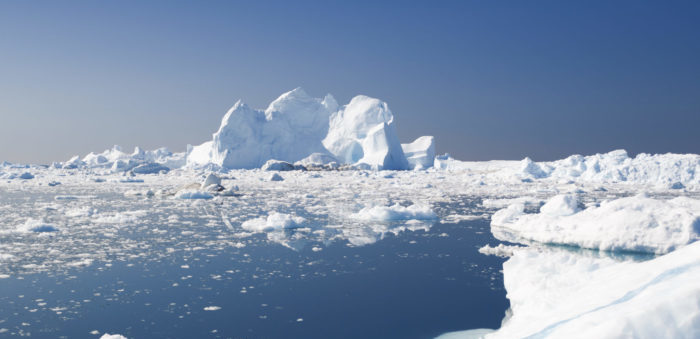A team of scientists supported by the EU have embarked on a year-round expedition to study climate change and the marine ecosystems of the central Arctic ocean. The Polarstern icebreaker departed on 20 September. The MOSAiC (Multidisciplinary drifting Observatory for the Study of Arctic Climate) expedition is the largest polar expedition to date.
The expedition aims to improve understanding of these ecosystems and help scientists determine whether fish stocks might exist in this area that could be harvested on a sustainable basis.
The backbone of the expedition is the German research vessel Polarstern, which will spend a year drifting through the central Arctic ocean while attached to an ice floe.
The vessel will cover a total of some 2,500 km. During the expedition, RV Polarstern will be resupplied by four additional icebreakers from China, Russia, and Sweden.
About 600 researchers from 19 countries will visit the Polarstern during this year to conduct research and gather data to gain a better understanding of global climate change.
Among them are scientists from the EU-funded consortium European Fisheries Inventory in the Central Arctic ocean (EFICA).
This work will support the implementation of the Agreement to prevent Unregulated High Seas Fisheries in the Central Arctic Ocean.
Last year, the EU and nine countries (Canada, the People’s Republic of China, the Kingdom of Denmark, Iceland, Japan, the Republic of Korea, Norway, the Russian Federation and the US) signed the Agreement, as a first step towards the possible creation of one or more regional fisheries management organisations to ensure that any future fishing is carried out sustainably.
Before such a decision can be made, however, the agreement envisages the establishment of a joint program of scientific research and monitoring to improve parties’ understanding of the marine ecosystems of the CAO.
This joint programme will be discussed extensively during an upcoming scientific meeting in February 2020 that the EU will organise and host.
Even though the new agreement has not yet entered into force, parties have agreed to already start working on its implementation, in particular the joint program.
So far, the EU, the Russian Federation, Canada, Japan and the United States have ratified the agreement. It will enter into force when the other five signatories have done so as well.
The Arctic region is warming at more than twice the global average rate, causing changes in the size and distribution of fish populations.
However, until present, most of those high seas were not covered by any international conservation and management regime, while there is still a very limited understanding of the Arctic marine ecosystems.
The Polarstern icebreaker was also deployed on an Arctic expedition in the spring of 2014 and summer of 2015, where researchers found higher amount of microplastic in Arctic sea ice than ever before.


































































